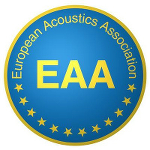Term of current Chairs: 2025-2028
In a nutshell
The TC PPA represents researchers and engineers working in the fields of auditory psychophysics, and physiology, including speech perception and production. It aims at bridging the fundamental neural-based physiological research with auditory- and speech-based cognition and behaviour in natural listening situations.
Who we are?
The TC PPA represents researchers working on the psychophysics and physiology aspects of the human auditory perception such as hearing and speech, speech production, and communication system. This includes not only psychoacousticians, physiologists, and modellers doing fundamental science, but also researchers working in applied disciplines such as audiology, audio engineering, and speech communication. The TC PPA aims at bridging the output from basic research with applications often reflected in model implementations, toolboxes, and applications.
Bridging the gap between psychological and physiological research is especially important. Physiological studies often provide evidence for mechanisms underlying auditory and speech processing, creating a solid neural basis for models generating testable hypotheses about the cognitive consequences of neural circuits and their response patterns. Psychoacoustics, in turn, provides methodology to test these hypotheses in behavioural studies and natural listening situations involving speech and non-speech sounds helping to develop functional models and explanations of perceptual phenomena. Incorporating speech and hearing research expands our understanding of auditory perception and communication, and fosters new developments in technologies such as hearing-aid devices, speech-enhancement systems, as well as human–machine interaction in virtual, augmented, and extended reality.
The board
- Chair: Piotr Majdak (Vienna)
- Vice-chair: Philipp Aichinger (Vienna)
- Council: Sarah Verhulst (Ghent), Massimiliano Masullo (Naples), André Fiebig (Berlin), Lorenzo Picinali (London), Margret Engel (Dresden)
Our goals
- To represent European researchers working in the fields of auditory science ranging from physiology to psychoacoustics;
- To promote the collaboration between physiologists, modellers, psychoacousticians, and audio engineers;
- To provide an organizational basis for exchange of students and more experienced researchers between laboratories;
- To promote the development and application of auditory models;
- To offer a market of opportunities for graduate students and postdoctoral fellows;
- To support teaching activities on the European level such as summer schools on the PPA topics;
- To act as a link between academic research institutions and (industrial) institutions of applied research (job market, industrial internships, supranational funding initiatives).
History
In 2002, during the 12th International Symposium on Hearing in Mierlo, the Netherlands, an initiative was formed to promote the formation of a technical committee “Psychological and physiological acoustics” (TC PPA) within the organization of the EAA. In 2002, this committee started its provisional operation with a TC meeting at the EAA convention at Sevilla, Spain. At this meeting, Georg Klump (Oldenburg University, Germany) and Armin Kohlrausch (Philips Research Laboratories and Technical University Eindhoven, The Netherlands) were elected as speakers of the TC.
During the e-Forum Acusticum in December 2020 (held online because of the Covid-19 pandemic), a new board has been elected: Piotr Majdak (Chair) and Janina Fels (Co-Chair) as well as the councils Sarah Verhulst, Mathieu Lavandier, Andre Fiebig, and Armin Taghipour.
During the TC meeting at Forum Acusticum 2025 (held in Malaga, Spain) the current board was elected. We are currently 67 members from many European countries.
Membership
Who benefits from a membership in the TC PPA?
Established researchers: The core of the TC PPA is build upon established researchers in the field of hearing science. They benefit from the general goals of the TC and the ability to shape the future European PPA research landscape.
Young researchers: They benefit from the networking options, contributions to the knowledge exchange and information on opportunities.
Graduate students: They benefit from being integrated in a network of interdisciplinary research combining fundamental science with technical audio applications.
How to become a member?
All interested members of national acoustics institutions are invited. Simply send an email to the chairs.
Contact
- Piotr Majdak, Vienna <piotr.majdak@oeaw.ac.at>
- Philipp Aichinger <philipp.aichinger@meduniwien.ac.at>
TC members can also chat and discuss with us via the MS Teams Channel “EAA TC PPA”.
